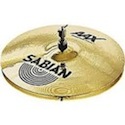|
What level of difficulty can I expect for graph type problems at a FAANG level? I've been reviewing questions like scheduling order etc but I really don't see how a question any harder than this is suitable for an interview strictly because you're getting to an amount of code that's very hard to write, verify, explain, iterate on in a ~35 minute window. This is really the first set of questions where I've gotten stressed. Even DP seems more reasonable, albeit a bit one-tricky, compared to some graph problems. Alien Dictionary, for example, is seemingly the very upper limit of what I can see myself getting comfortable enough to handle in an interview. As I start to really prep I'm beginning to see that there's just sort of a blueprint for every question that's "reasonable" to solve in a whiteboard capacity. Also, I stumbled across the question that screwed me in my last Google interview - it was a variation of this. It was basically a count of the shortest paths to a spot where you could observe an item flagged 'F' or something. There were walls, and there were items you had to look for, and you had to count the number of ways you could see any iteration of the item you were search for in the maze. Good Will Hrunting fucked around with this message at 17:39 on May 17, 2021 |
|
|
|

|
| # ? May 30, 2024 22:19 |
|
At least when I went through a FAANG process in 2015, there were 2 coding exercises: the initial phone screen where you had 45 minutes on a shared code buffer where they just make sure you can actually program, and an in-person interview where they're going to probe your algorithms/CS knowledge. The initial phone screen interview was really simple; reading some data out of text files and mashing it together. That problem you linked to does seem way too hard for an in-person interview; but also remember they're not trying to see if you get a working/optimal solution, they're asking to see how you approach it. Do you think and ask questions, or just start typing code? Do you just blank and bail out? Do you try to get some primitive-but-non-compliant solution going first, and then build off that? Do you get stymied by trying to over-optimize from the get-go or trying to handle all the corner cases? So, while I don't think you'd get a problem this hard in an in-person interview, I also don't think it's out of the question.
|
|
|
|
Yeah that's why my experience with Google was terrible last time around. I mentioned a few pages back, but my interview was literally the interviewer saying: "Hello, here is the question", copy pasting that question into a Google doc, and going radio silent for the 40 minutes of the interview. It was truly awful, I asked questions and tried to work with them but literally zero back and forth. Totally contradictory to the first time I interviewed at Google and the phone screen was really positive. Basically just the "jumps to the end" question and I worked through it pretty smoothly with my interviewer who was pretty cool.
|
|
|
|
That sounds like a bad interview and is definitely not what our interviewer training says to do.
|
|
|
|
Paolomania posted:That sounds like a bad interview and is definitely not what our interviewer training says to do. Obviously, but it's a somewhat common problem at Google from second hand accounts that seems to continue unchecked. I've had multiple good friends experience the same thing in their loops. Google's eager willingness to have a high false-negative rate makes it a really demoralizing place to be a candidate at. Guinness fucked around with this message at 18:39 on May 17, 2021 |
|
|
|
Yeah interviewers can wildly vary in how much they care. It's a huge time sink to interview so FAANGs incentivize engineers to host interviews by (for example) including "does job interviews" as part of their regular performance eval. But they don't evaluate how well you conduct interviews and once you've done a couple of shadows, no-one is checking in on you. So for some interviewers it's just an easy way to get some perf cred. The performance evals at FAANGs incentivize a whole bunch of undesirable behavior, but that's a different conversation.
|
|
|
|
The number of people who receive any kind of training in interviewing (even basic stuff like protected topics you are legally forbidden to ask about) is vanishingly small.
|
|
|
|
minato posted:Yeah interviewers can wildly vary in how much they care. It's a huge time sink to interview so FAANGs incentivize engineers to host interviews by (for example) including "does job interviews" as part of their regular performance eval. But they don't evaluate how well you conduct interviews and once you've done a couple of shadows, no-one is checking in on you. So for some interviewers it's just an easy way to get some perf cred. There's even an incentive to be bad at interviews! If you're diligent and give useful feedback, then the internal recruiters figure that out and suddenly you are their favorite person, scheduled for as many interviews as they can possibly cram into your schedule. Which then cuts into the time you can spend on doing the stuff you're actually evaluated on.
|
|
|
|
To elaborate on how FAANG performance evaluations create undesirable behavior: basically every 6 months you have to "justify your job". Every other place I worked, perf evals are perfunctory and don't really count for much unless you're angling for a promotion. At a FAANG though, you have to demonstrate your impact. While this sounds perfectly reasonable - you're getting paid a lot of money, you should be able to justify why - it incentivizes some devious behaviors. Examples: - Metrics are better than intangibles, so focus on projects that have measurable impact. Better to say "We made product X 20% faster" than "I refactored this code to make it easier to maintain". Result: code hygiene or any improvement that's hard to measure tends to be left by the wayside, resulting in an awful codebase and lots of tech debt. Also, don't work on any project that can't show results within the next perf cycle, or has a risk of failure. - Saying you launched a product is better than saying you supported an existing one. So join a team that's launching a product, then immediately leave once it's released. Result: the product's subject-matter-experts all leave after the launch and the product crumbles. - Volunteering for certain things (interviewing, mentoring, being on councils, etc) is considered a plus, but you're never evaluated for your impact. So just sign up for as much as possible and put in as little effort. Result: should speak for itself. - Positive peer reviews count for a lot. So, make some friends, form a cabal, and positively review each other. Result: inauthentic evaluation data. (There was a variation of this when Stack Ranking was a thing; the seniors knew the lowest tier would be culled, so they'd collaborate to save themselves)
|
|
|
|
downout posted:A couple of places I've gotten far enough with to see numbers substantially boost my pay in a low CoL area. This was for remote positions, and they were able to offer +40.0% more than the regional companies. I'm expecting to see shifts into remote hires into low CoL areas. I live in the midwest. Last week I signed a remote offer with a FAANG-lite or whatever you want to call that next tier down that still pays competitive comp with the big guys. I wasn't sure what a good starting point in negotiations was, I asked for a number based on 75% percentile on levels.fyi for that title. I was told I could get that number if I was in SF or NYC but not where I'm at. They came back with about 90% of that, said it was top of band and the best and final offer. TC was still well into the 300s, I decided to take it. Base comp alone is 20-30% higher than the total package I could get from a local company, let alone bonus target and RSUs.
|
|
|
|
Congrats! Post your YOE and breakdown of base/bonus/RSU, OP, I need to start getting ideas of what to shoot for. I'm assuming it's a F.L.A.M.I.N.G.A.S.S. company?
|
|
|
|
I just had an onsite with AWS and it mostly went really well. I think I did decently on all the behavioral stuff and the three technical problems. I flubbed the system design though - it was with the engineering manager of the team that's hiring and I had about 20 minutes to "design Facebook Messenger." I got hung up on how to do the friend connection and didn't even get to the messages part. Back to Designing Data-Intensive Applications I go!
|
|
|
|
We've started to see the national flattening of wages with my team. Everyone got defensive raises since everyone started interviewing at once. They went from midwest levels of pay to Austin levels of pay. None of them were approaching SV/Seattle levels of pay. I at least got some more RSU's out of it... if I'm still around next June to enjoy them. Good Will Hrunting posted:F.L.A.M.I.N.G.A.S.S. company? This is a new one for me. Who we got in that list?
|
|
|
|
kayakyakr posted:This is a new one for me. Who we got in that list? Facebook, Lyft, Amazon, Microsoft, Intel, Netflix, Google, Apple, Salesforce, Square
|
|
|
|
Bruegels Fuckbooks posted:Facebook, Lyft, Amazon, Microsoft, Intel, Netflix, Google, Apple, Salesforce, Square These acronyms are just getting silly at this point And there are so many other "tier 2" public companies that aren't included that would pay just as much if not more than half that list.
|
|
|
|
Bruegels Fuckbooks posted:Facebook, Lyft, Amazon, Microsoft, Intel, Netflix, Google, Apple, Salesforce, Square I now know I don't like it: you can't be throwing in duplicates of the FAANG companies just to make an acronym. That's a total M.I.S.S.(L.)
|
|
|
|
Can someone make FLAMINGO work?
|
|
|
|
Guinness posted:
|
|
|
|
"tech major" and trust me airbnb uber and stripe can be puttin up comparables to the for-sure tech majors
|
|
|
|
kitten smoothie posted:I live in the midwest. Last week I signed a remote offer with a FAANG-lite or whatever you want to call that next tier down that still pays competitive comp with the big guys. This is what I was seeing. They told me I was in the lowest pay region. The TC for a title lower started ~60.0% higher with benefits that shamed what is available regionally. Even companies that don't or can't directly compete with FAANG compensation can increase my pay by quite a bit, or offer a solid compensation increase with a lower title which is completely fine with me!
|
|
|
|
Does Level or something have an average salary per year worked tier or something? Or like, is there any way to determine what I should shoot for? I'm completely lost.
|
|
|
|
minato posted:To elaborate on how FAANG performance evaluations create undesirable behavior: basically every 6 months you have to "justify your job". Every other place I worked, perf evals are perfunctory and don't really count for much unless you're angling for a promotion. At a FAANG though, you have to demonstrate your impact. While this sounds perfectly reasonable - you're getting paid a lot of money, you should be able to justify why - it incentivizes some devious behaviors. These are not "FAANG" things. This sounds like a description of Google's perf review process and you're just assuming that the other four companies are identical.
|
|
|
|
ultrafilter posted:Can someone make FLAMINGO work? You're welcome.
|
|
|
|
Good Will Hrunting posted:What level of difficulty can I expect for graph type problems at a FAANG level? I've been reviewing questions like scheduling order etc but I really don't see how a question any harder than this is suitable for an interview strictly because you're getting to an amount of code that's very hard to write, verify, explain, iterate on in a ~35 minute window. This is really the first set of questions where I've gotten stressed. Even DP seems more reasonable, albeit a bit one-tricky, compared to some graph problems. Alien Dictionary, for example, is seemingly the very upper limit of what I can see myself getting comfortable enough to handle in an interview. The one you got sounds a lot like my old favorite graph question, it's probably in line with basic usage of graph algorithms with some smart algorithms techniques. Finding a specific path based on a property (shortest, lowest weight, whatever) is pretty much the basic of graph problems. You should know how to implement/use bfs and dfs to solve a problem. They're both really the basics of searching in a graph that everything builds on (e.g. "how many things can get to the goal within 5 steps" is just a bfs going backwards in the graph) I don't think you need to remember min cut/max flow style things, and I never remember Dijkstra's without basically reconstructing it from scratch, but you should be able to search a graph and spot a word problem that's a graph.
|
|
|
|
Plorkyeran posted:These are not "FAANG" things. This sounds like a description of Google's perf review process and you're just assuming that the other four companies are identical. Google notably tried to fix some of these problems, like the "leave a project once it's launched".
|
|
|
|
the talent deficit posted:that was my post negotiation offer. i don't remember the exact details of my initial offer but it was significantly lower. i asked for a lot more in base and a lot more in rsus and they came back with a lot more in signing bonus and slightly more in base and rsus. the impression i got from the negotiation was that base was not really negotiable but rsus and bonus were. i had a much better offer at the time though so i turned them down rather than continue to negotiate thanks for that. i have a negotiation call tomorrow. the initial numbers he gave me were okay but not as good as yours obviously. i see you asked for more base and rsus. would it be best to just ask for higher tc in general or be specific? i'm still waiting to see if another place is going to offer and still need to do loops at others at this point so nothing but my current TC to bargain with.
|
|
|
|
Acer Pilot posted:thanks for that. i have a negotiation call tomorrow. i don't think it hurts to be specific, but i also let them know i was flexible with how the deal was structured if it meant hitting my total comp target
|
|
|
|
Plorkyeran posted:These are not "FAANG" things. This sounds like a description of Google's perf review process and you're just assuming that the other four companies are identical. I recognize these criteria from not-google, and the optimizing behavior would be pretty much the same.
|
|
|
|
After a rather prolonged interview process, I've finally received an email inviting me to an offer interview. Any idea what I should expect? (and how i should act)
|
|
|
|
marumaru posted:After a rather prolonged interview process, I've finally received an email inviting me to an offer interview. Any idea what I should expect? (and how i should act) From my experience, the offer interview will be a fairly short affair where they present you with a piece of paper with some numbers on it, and then they hope that you say yes immediately. You are not obligated to do that though. Feel free to say you need some time to think about it. This is also when you can get details about non-monetary compensation, i.e. benefits, time off, etc
|
|
|
|
Discussion came up in SA code after I made a vaguely poo poo post about setting up a projector and AWS Lambda + Transcribe app to programmatically bring up all notes for a parsed interview problem type keyword which got me thinking.. what's "wrong" with using a small set of notes for the harder problem types in remote interviews? Even small reminders around gotchas and things to check carefully are extremely helpful for increasing the speed at which you can focus on the more difficult parts of an algo and continue onto adjusting the blueprint to solve the problem at hand, checking edge cases, etc. Everyone's brain is wired to process these problems differently but as someone mentioned, if you can get through solving them with a small set of reminders in the window of an interview, that should qualify you enough to solve them with a full utility belt of tips and tricks.
|
|
|
|
Good Will Hrunting posted:Discussion came up in SA code after I made a vaguely poo poo post about setting up a projector and AWS Lambda + Transcribe app to programmatically bring up all notes for a parsed interview problem type keyword which got me thinking.. what's "wrong" with using a small set of notes for the harder problem types in remote interviews? Even small reminders around gotchas and things to check carefully are extremely helpful for increasing the speed at which you can focus on the more difficult parts of an algo and continue onto adjusting the blueprint to solve the problem at hand, checking edge cases, etc. Everyone's brain is wired to process these problems differently but as someone mentioned, if you can get through solving them with a small set of reminders in the window of an interview, that should qualify you enough to solve them with a full utility belt of tips and tricks. i never whiteboard whiteboard problems, i bring a graph paper legal pad from my copious supply and do it on there because i can rip sheets off and have more writing surface. because of the bigness of whiteboard markers about two graph paper sheets is equivalent to a whole whiteboard, but i usually use like 4-10
|
|
|
|
so the recruiter wouldn't say another number for the counter and said i had to give a number this time. i just ended up saying a bigger tc and said i was flexible with how they distribute it like the talent deficit said. maybe i should've said an even bigger number but oh well, said they'd check with comp people to see how they can make it work.
|
|
|
|
When's a good time to bring up upcoming time-off during the interview process? For more context: Really getting sick of my current gig to the point where I'm ready to start applying now. I have a wedding + honeymoon coming up in August and will probably be out for 2.5 - 3 weeks. I have zero expectations that a company pay for this time off (I'm a contractor at my current gig, so I pay myself time off and have money saved up just for this event), but I know it's pretty inconvenient to start a new gig and then suddenly be out for the better part of a month. I was originally planning on just sticking it out until August then applying everywhere afterwards, but I can't hold out any longer. Should I bring up my situation at the very start of the interview process? After accepting the offer or just before then? I have a friend who is also a dev who said their company is hiring, and he told me that it'd be zero problem to take that time off if I was working there, so I wonder if maybe I think this is a bigger deal than it actually is. Thanks goons!
|
|
|
|
The Dark Wind posted:When's a good time to bring up upcoming time-off during the interview process? The two times I've found myself in this situation, I've brought it up during the conversation of accepting an offer and setting a start date. Also both times I sweated having the conversation, only to have the response be "that's totally cool, we can flex around this." This is a thing with $FUTURE_JOB; I'm going to start, have a few days to get the formalities done, then go on vacation. Afterward I get to hit the ground running with real work. They're an unlimited PTO shop so starting with zero accrual isn't an issue though. At a past job where I did something similar, I can't remember the specific way they managed around accruals, but my manager got with HR and made it so the vacation could happen by the book. kitten smoothie fucked around with this message at 01:21 on May 19, 2021 |
|
|
|
The Dark Wind posted:When's a good time to bring up upcoming time-off during the interview process? I'd bring it up after getting an offer and before accepting; prior to that they either won't care at all or it might hurt your chances. It's very unlikely to be a big deal though, especially at a larger company. There's also a chance it'll be moot, the hiring process can be real slow so it's not totally crazy to think you might not have an offer on the table by August. The company I just joined let me pick my own start date and even suggested I take 1-2 months off between jobs to recharge, so that's another option.
|
|
|
|
Bring it up at the "accepting the offer" stage.
|
|
|
|
I switched jobs when getting married. I was technically unemployed the day I got married. I have notice a little over two weeks before getting married Basically I took the job, and when they asked about my start date, I picked two weeks after the wedding. Well two days later I realized A) that was a Friday, which is a terrible day to start B) turned out it was Friday the 13th, if you're into that sort of thing* Called them up and had them move my start date to Monday the 16th. Wasn't an issue at all, turns out nobody really cares when you start unless you're backfilling for a really tiny team or whatever special case. In my situation the req had been open for months so two weeks and two days wasn't a major stretch for anyone. I don't think I ever gave my boss the reason to move the start date to Monday * Although, I ended up being the only remaining person on my team after one year 
|
|
|
|
The last two places I started at batched their new hires together into a big event every two weeks so they didn't have to do orientation more than necessary. Neither had an issues with shifting the date to the next new hire day.
|
|
|
|

|
| # ? May 30, 2024 22:19 |
|
This is all great and just what I needed to hear! Appreciate it folks
|
|
|







































